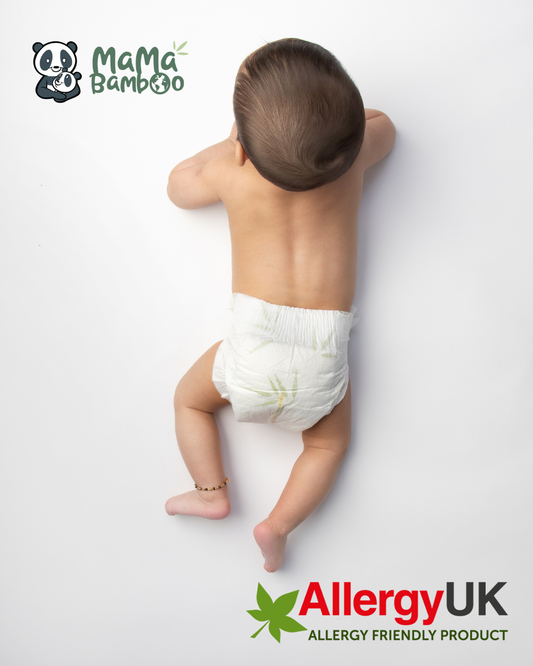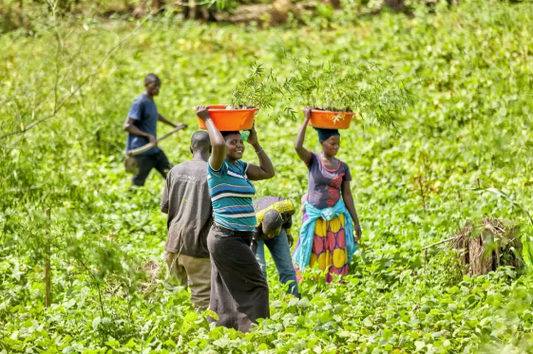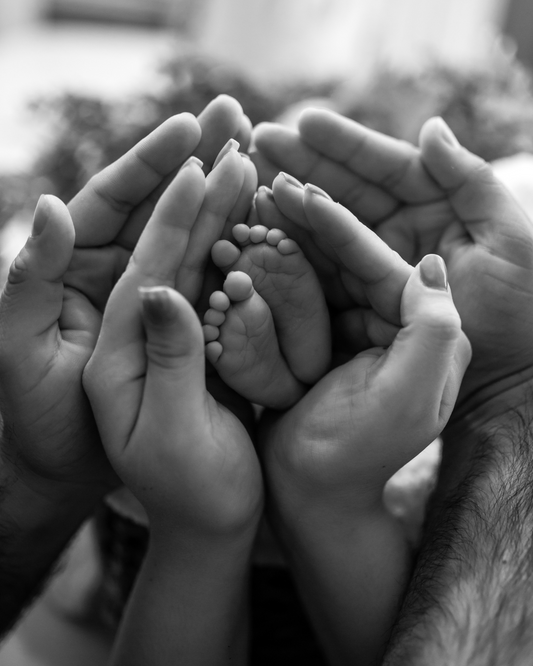Composting our products
80% of a Mama Bamboo nappy is biodegradable. The frontal tape and side tabs are not biodegradable and will not decompose, so will need to be removed before using your lovely rich compost in the garden. They are easier to remove before you begin the composting process. Simply tear these bits off before popping the rest of the nappy into your chosen compost bin.
You can choose between a hot compost system, vermiculture (wormery) or bokashi compost to safely manage your nappy compost.
You should not use a cold garden compost pile; a high level of heat is needed to safely destroy the bacteria and pathogens associated with human waste.
For more detailed discussion on the various composting techniques please refer to the gardener's bible:
How to Compost Diapers? A Green Guide - GardenerBible
Benefits of composting nappies and wipes
In addition to the obvious environmental benefits of reduce waste to landfill or incinerator, you will benefit from some key improvements to your soil:
- Adds Valuable Nutrients to Your Compost With the breakdown of nappies and human waster, beneficial nutrients like nitrogen, potassium, phosphorus, or carbon get released into your compost pile. These nutrients help create fertile soil that plants love.
- Helps Balance Green & Brown Materials The nappies and wipes serve as a green material in your compost, maintaining the ideal carbon-to-nitrogen ratio for efficient decomposition. This keeps your pile healthy and active
- Improves Soil Structure The decomposed nappies add organic matter that helps create a crumbly, well-aerated soil texture. This improves drainage in clay soils and water retention in sandy soils.
- Supports Beneficial Microorganisms Used nappies will provide food for the bacteria, fungi and other decomposers that make composting possible. These microbes multiply with the presence of nappies, speeding up the breakdown process.
- Can Help Regulate Compost Moisture A naturally damp material is an important consideration when looking at if you can compost nappies or any other thing. The natural moisture properties of nappies can help maintain ideal dampness/absorb excess liquid in your compost pile, creating better conditions for decomposition.
- Reduces Need for Chemical Fertilizers By returning nutrients from nappies back to the soil through composting, you decrease dependence on synthetic fertilizers, creating a more sustainable growing system for your whole garden.
A National Problem
If you cannot hot compost at home, our nappies need to be put into general waste.
Although our nappies can be composted, sadly no English council currently offers a kerbside collection service for composting nappies on a large scale. Some Welsh councils offer a nappy recycling service, but this is not available in the rest of the UK.
The lack of a council-run nappy recycling service horrifies and frustrates the team here at Mama Bamboo HQ. As a result, we are working closely with UCL (University College London) on a research grant to investigate and promote the widespread implementation of council-facilitated waste management for bioplastics and compostable AHP (Absorbent Hygiene Products).
Numerous research projects are currently underway in Germany, Belgium, and the USA. The UK is a little behind the curve. Studies have shown that composting of bioplastics will be feasible in the UK as soon as commercial sales volumes have increased sufficiently to support the investment required.
"We know from direct experience that it is technically possible to compost compostable diapers. And the composting infrastructure is widely available to receive them. The issues that need to be resolved are legislative rather than practical." David Newman, Managing Director BBIA UK
Ellen MacArthur Recommendations for Nappy Composting
The Ellen MacArthur Foundation published a clear set of guidelines and recommendations for all governments and manufacturers to successfully achieve a fully circular model for compostable nappy waste.
A circular economy for nappies and how to implement it locally

Mama Bamboo continue to champion these recommendations and campaign at the highest levels of UK government to amend legislation and develop the collection facilities needed.
What can I do?
By choosing Mama Bamboo products and other bioplastics when you are shopping, you are helping us to send a clear message to the government. We, as consumers and manufacturers, are willing to change and avoid fossil fuel plastics but we need their support to realise the full benefits of these choices.
Please do join our campaign #thenappyrevolution and sign our petition:
A nappy composting case study
Companies such as Soiled Diaper in Canada, Earth Baby in the US and Envirocomp in New Zealand, and community projects such as Dycle in Germany, are composting nappies by the millions.
The city of Toronto in Canada has been composting eco-nappies for over 10 years. They have diverted over 2 billion used nappies away from landfill.
Toronto collects nappies and other organic waste and sends it to a processing facility. The resulting compost is distributed to farmland and parks.
That’s right! Canada’s babies and toddlers, for all their messes, are helping Canadian crops to grow.
The programme, called “Green Bin,” also accepts animal waste, kitty litter and sanitary products. Just as crucially, it provides assurances that the process is “completely sanitary and safe”:
"Through decades of experiment and experience, sanitary engineering practice has developed standards for the composting process that ensure elimination of disease-causing organisms (pathogens). The high temperatures occurring naturally during the composting process destroy pathogens. Maintaining such high temperatures for a minimum time period ensures the final finished compost is pathogen-free."
We campaign tirelessly for our own government to make this service available in the UK.
In the meantime, will they biodegrade in landfill?
Whilst we push for change, the reality is that used nappies will be collected alongside regular waste in the UK.
If they end up in landfill, the compostable elements of our nappies will biodegrade at a slower rate than under ideal hot or industrial composting conditions. UK landfills are not currently managed to promote biodegradability. They are densely packed and lack the necessary natural microbes, oxygen and light. It is estimated that a plant based nappy will take between 20-50 years to degrade in landfill rather than 500 years like a plastic version. As it degrades it will not leach chemicals or microplastics into the soil or ground water.
If they are diverted to incinerator, plant based nappies will release 6x less carbon and toxic fumes than a plastic version.
So, no matter where a plant based nappy ends up, it will have a lower environmental impact at end-of-life than a plastic version. This combined with the significantly lower impact at the point of production makes plant based nappies a better choice for the planet.






1 comment
It’s pretty amazing to think that even dirty diapers can have a second life nourishing soil instead of sitting in a landfill. Toronto’s Green Bin program is a great example of turning everyday waste into something useful, all while keeping the process safe and sanitary. It’s reassuring to know that decades of research have gone into making this kind of composting both effective and hygienic. For those curious about how diaper recycling works more broadly, check out https://diaperrecycling.technology/ there’s a whole world of innovation happening in this space!